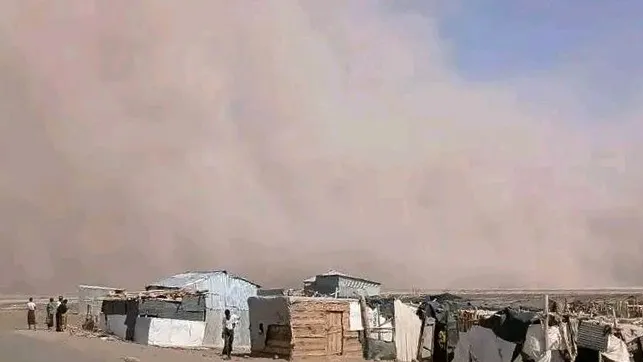Ethiopian volcano erupts after lying dormant for 12,000 years


In a dramatic twist of nature, Ethiopia’s long-silent Hayli Gubbi volcano has erupted for the first time in over 12,000 years, stunning scientists and sending shockwaves across East Africa and beyond.
The eruption began suddenly on November 23, blasting a massive plume of ash 14 kilometers into the sky. Villages around Afdera in the Afar Region woke up to darkness as thick ash blanketed the landscape, coating homes, grazing fields, and water sources. Though no casualties have been reported, the economic worry is severe the region depends heavily on livestock, and ash-contaminated grazing areas threaten the livelihood of hundreds of families.

Scientists say this eruption is historic. Hayli Gubbi had no known eruption in recorded history. For centuries it sat quietly at the edge of the East African Rift, one of the most geologically active zones on Earth. Now, the sudden awakening of this “sleeping giant” is forcing researchers to rethink volcanic risk in the region.
The impact is global. Ash clouds have drifted across the Red Sea into Yemen and Oman, triggering aviation advisories. Some reports indicate thin ash layers reaching parts of India and Pakistan, showing just how powerful the blast was.
Experts warn that the coming days are crucial. Will the volcano quiet down or is this the beginning of continued activity? Scientists are monitoring gas emissions, seismic activity, and ground movement to understand what comes next.
For now, the world watches as Ethiopia faces an extraordinary natural event one that reminds us how alive, unpredictable, and powerful our planet truly is.

